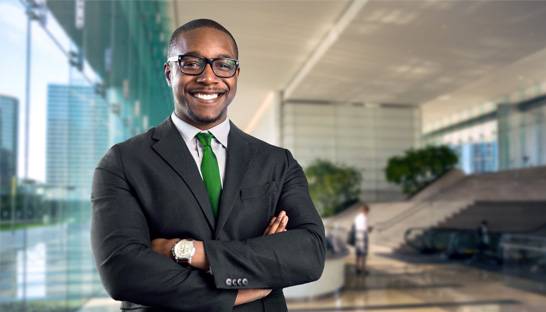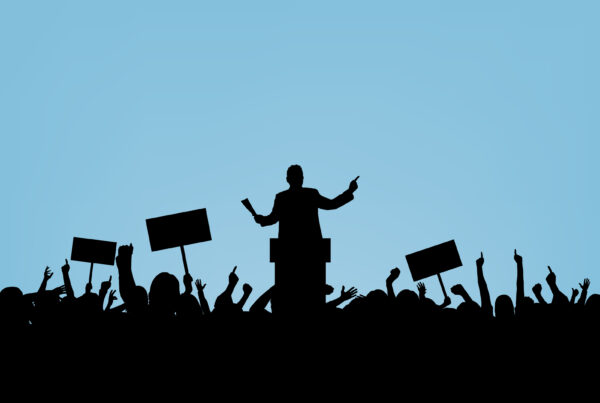SOCIAL CONTRACT AND CONDITIONS OF A FREE SOCIETY
Leadership, either political or at the corporate level, is all about the use of power to influence the behaviour of people towards the attainment of desired (set) goals. The leader may employ tactics and strategies based on situations or self-conviction. In anyway, the use of power produces three possible results namely, commitment, compliance or resistance.
In a democratic setting where power resides with the people, the politicians during their electioneering, usually put together their plans, policies, ideologies and road-maps in form of manifestoes, to get to the hearts of the masses. No matter how these instruments are crafted, they, together with the constitution of a country which specifies the indubitable functions of government, present a form of social contract with the people. It is only in extreme communism, a totalitarian or any form of non-representative government that can claim exception to this norm. Whether the contents of the social contract are kept by the leaders even when they are sworn to during the ritual of oath-taking is another academic discourse. Sometimes, they are couched in nebulous language; the other times they come in omnibuses. The intention is to confuse the masses and reduce their power of intellectual appraisal and criticism.
The common man cedes part of his freedom, privileges and personal inclination and subjects himself to the general will, which is focused on the common goal of the whole community. This is opposed to the will of the majority which is sometimes subjective and a product of political manoeuvring.
The will of all is a compromise between the desires, interests or wills of individual members of the community. It presupposes, therefore, that the common man who professes the general will naturally transmutes from being just an individual to being a citizen. One of the founding fathers of Modern Political Though, Jean-Jacques Rousseau, however believes that those who subscribe to the general will cannot claim that it restricts their freedom, since according to him, freedom is about autonomy or self-rule (living under laws one has made for oneself.) No doubt, there will be instances where acting in tandem with the general will may appear to conflict with one’s private inclination; one must subordinate those inclinations to the general will. A contrary action will translate to working against one’s real interests. Rousseau posits that “in such circumstances if the law requires me to act against my inclination then the law is effectively forcing me to be free!” What a paradox? The right to life and every freedom associated with it within the ambit of the law is an inalienable entitlement of all citizens. But one can hardly be free if the society where one is a player is not free.
Rousseau (1712-1778), a French writer born in Geneva, insists that certain considerations beget a free society. Owing to the nature of his agitations, some of his contemporaries refer to him as “a man of volatile emotions, but keen mind.” What are these considerations? First, approximate economic equality. He believes that unequal access to wealth and prosperity will continue to engender strife, envy, and resentment, with the propensity of fragmenting the community. To confirm his hard stance on this, Rousseau advocates economic autarchy, which implies doing away with foreign trade and depending on self-sufficiency in the production of what citizens need. His argument is that international trade and politics is not only potentially destabilizing, but it also introduces luxury goods beyond what can be produced at home, and this has the effect of fostering pride, envy and concern for status. This sounds logical, but clearly an unsustainable panacea. Nations depend on one another for mutual growth, respect and development. The world is encouraging free enterprise, and so, there can hardly be equal access to wealth, as not all persons are equally endowed mentally, by measure of hard work or opportunities.
While his apologists and leftists hail him, many subsequent commentators have labelled him a precursor of totalitarianism. The second is the absence of intermediate associations. Here, Rousseau abhors religious and political pluralism as according to him, allegiance to churches, mosques, guilds and associations are potential sources of sectional and private interests working against the general will, because they provide alternative sense of belonging to that of normal citizenship. This is also an extreme approach. Granted, religion as the opium of the masses tends to dictate mode of behaviour to the fundamentalists. A great majority of the world is secular, and it appears that the possibility of legislating the absence of these intermediate association is far-fetched. Finally, Rousseau thinks there is an optimum size to the state. To him, the small classical Greek city-states or the Calvinist theocracy or Geneva were most conducive to freedom because in a small state it is easier to share political rule and identity with one’s fellow citizens. Upon a critical look at the foregoing, one would be tempted to ask: Can a society be free? There is no absolute freedom anywhere, as that is a recipe for anarchy and chaos. But a society can be relatively free. Let us paint a hypothetical picture here.
Our leaders and politicians suddenly realize that they need to keep their part of the social contract; there is equal access to education and health facilities provided by the state; there is no nepotism in employment; there is a control of noise pollution by churches and mosques and a strengthening of the legal system to deal with deviants; a continuous sensitization of the citizens of the need to pro-create in line with their capacities irrespective of religious dogmas and doctrines; there is a free, fair and credible election; there is social security for the elderly, and there is a full return to federalism as practised in the developed world. This is strong enough a pedestal to build a free society. But if we expect that the freedom will just happen without a robust, conscientious and consistent demand for the general will, then that will be puerile.
Rousseau would have lived in a society as forlorn as the present Nigeria, hence his extreme views. Would we rather not support him than support our roguish politicians who unabashedly ask us to pray for them while they prey on us? Last Line: Give people a large complex issue to solve without the preparation or time to do it, and they will throw up their hands in frustration. Give them the coaching, resources and time necessary to reflect on their insights, and the problem-solving experience creates not only breakthrough solutions, but new wisdom for the organization.



